Wildlife crime is one of the greatest challenges facing conservation, and one of the conservation tech world's biggest areas of innovation. With new ideas and solutions constantly being put forth to track and protect species targeted by poachers, manage protected areas and support rangers, and combat the growing online market for illegal wildlife products, the engineers and conservationists working to solve wildlife crime's many challenges rely on tools like machine learning, biologging, camera traps, acoustic monitoring, drones, mobile apps, and more.
This wide variety of overlapping technology makes our Wildlife Crime group a potential melting pot for many of our other communities, and makes it an especially exciting place to find collaborators working in different tech spheres to meet a common goal. Whether you're a camera trap expert looking for information on thermal vision to spot potential poachers, a machine learning expert with the skills to analyze acoustic data for gunshots, or a protected area manager seeking the latest integrated mobile tools, this group can connect you with the right members of our community!
Below, you'll find WILDLABS resources and conversations to help you understand how different technologies are being put to work in the fight against wildlife crime, and what conservation tech practitioners need for these tools to be effective.
Three Tutorials and Videos for Beginners:
- How do I use AI to fight wildlife crime? | Lily Xu, Tech Tutors
- WWF Wildlife Crime Technology Project | Eric Becker, Virtual Meetups
- SmartParks | Laurens de Groot, Virtual Meetups
Three Forum Threads for Beginners:
- Snare detection technologies | Rachel Kramer
- Tools for conservation management | Chris Muashekele
- Looking for Intelligence Database Software | Dexter Oelrichs
Three Articles for Beginners:
- Using AIS data to investigate the world's fishing ports, Max Schofield
- How do Wildlife Crime Experts view Remote Sensing Technologies used to Combat Illegal Wildlife Crime?, Isla Duporge
- Metal Detecting Sensors for Anti-Poaching, Sam Seccombe
Join this group now to get to know our community and start discussing solutions and ideas together!
Header photo: © Frank af Petersens/Save the Elephants
Neuroscientist & engineer looking for a data/R&D role in conservation.
- 0 Resources
- 0 Discussions
- 17 Groups
- @hyodopenguin
- | she/her
I am currently a rising junior at UC Berkeley studying data science. I hope to apply data with biodiversity, especially by utilizing camera traps for species classification. People in conservation tech are truly living my dream careers, and I can't wait to get even more inspired!

- 0 Resources
- 5 Discussions
- 23 Groups
Mobile developer w/ a passion for nature and conservation

- 0 Resources
- 16 Discussions
- 6 Groups
Spanish veterinarian interested in wildlife conservation
- 0 Resources
- 0 Discussions
- 14 Groups
OSINT analyst and investigator including wildlife crimes. Writer of children's animal books and articles for Animal World For Kids teaching about animal cognition, symbiosis and behaviour.
- 0 Resources
- 0 Discussions
- 3 Groups
- @Mumonkan
- | he / him
Conservation X Labs & Wild Me
Software Engineer for Wildlife Conservation

- 0 Resources
- 4 Discussions
- 11 Groups
- 0 Resources
- 0 Discussions
- 6 Groups
Wildlife Drones
Wildlife Drones has developed the world’s most innovative radio animal-tracking system using drones so you can track your radio-tagged animals like never before.


- 18 Resources
- 8 Discussions
- 32 Groups
Serendipity Wildlife Foundation
CEO, Serendipity Wildlife Foundation
- 0 Resources
- 5 Discussions
- 4 Groups
Fauna & Flora
Countering poaching and IWT

- 0 Resources
- 6 Discussions
- 2 Groups
- 0 Resources
- 0 Discussions
- 17 Groups
University of Adelaide

- 0 Resources
- 10 Discussions
- 17 Groups
Careers
Strategic Protection Of Threatened Species (NGO) is looking for engineering interns at the Dinokeng Game Reserve, South Africa
6 February 2025
The worst thing a new conservation technology can do is become another maintenance burden on already stretched field teams. This meant Instant Detect 2.0 had to work perfectly from day 1. In this update, Sam Seccombe...
28 January 2025
The Zoological Society of London's Instant Detect 2.0 is the world's first affordable satellite connected camera trap system designed by conservationists, for conservationists. In this update, Sam Seccombe describes the...
21 January 2025
The Connected Conservation is thrilled to announce our award's third round in collaboration with the Airbus Foundation. This award champions the use of cutting-edge satellite imagery to tackle biodiversity loss and...
30 September 2024
IWT Challenge Fund Evidence grants, ranging from £20,000 to £1,500,000, is a UK government grants scheme that provides support to innovative and scalable projects to reduce pressure on wildlife from illegal trade and,...
20 August 2024
WILDLABS is partnering with FLIR to give away a FLIR ONE Edge Pro to 5 community members.
26 June 2024
Wildlife Drones was deployed by Zoos Victoria in a trial project tracking captive-bred Eastern Barred Bandicoots that were tagged and released into the wild
14 June 2024
WildLabs will soon launch a 'Funding and Finance' group. What would be your wish list for such a group? Would you be interested in co-managing or otherwise helping out?
5 June 2024
Now accepting applications for two $15,000 grants to help protect wildlife through cutting-edge, technology-driven efforts
3 June 2024
The IEF's Elephant Conservation and Research Funding Support Program has opened a call for applications. Average grant size is $15K, whereas the IEF funds 20 to 25 projects per year.
22 May 2024
Do you have photos and videos of your conservation tech work? We want to include them in a conservation technology showcase video
17 May 2024
Article
Read in detail about how to use The Inventory, our new living directory of conservation technology tools, organisations, and R&D projects.
1 May 2024
June 2025
event
July 2025
November 2023
May 2023
event
42 Products
1 R&D Projects
41 Organisations
Recently updated products
Recently updated R&D Projects
Recently updated organisations
| Description | Activity | Replies | Groups | Updated |
|---|---|---|---|---|
| Hi Isla, The 3 threats are all situational and location dependent. For example, in South Africa there is a very well established muti industry and huge muti markets in KwaZulu... |
|
Wildlife Crime | 8 years 3 months ago | |
| Wildlife Crime group, A set of Training Guidelines for Anti Poaching Field Rangers were launched... |
|
Wildlife Crime | 8 years 3 months ago | |
| Hi everyone, Isla has shared the results of this survey in a new article in our Resources area. You can read her full analysis of the survey results here: https... |
|
Wildlife Crime | 8 years 6 months ago | |
| That paper is available on Sci Hub. |
|
Wildlife Crime | 8 years 9 months ago | |
| I just saw this article about embedding GPS trackers in fake turtle eggs. It reminded me of the Nat Geo story from last year where they did... |
|
Wildlife Crime | 8 years 9 months ago | |
| It sounds like @David+Baisch at Conservation X Labs just ordered a SCiO spec and developer's kit to test its sensitivity. They're interested in ... |
|
Wildlife Crime | 8 years 9 months ago | |
| Hello all, A new rhino poaching report is out by the Global Initiative against Transnational Organized Crime. ... |
|
Wildlife Crime | 8 years 10 months ago | |
| Here's a few apps relevant to combatting wildlife crime. 1. ENV- Report Wildlife Crime - This app specifically focuses on... |
|
Wildlife Crime | 9 years 1 month ago | |
| Hi Gautam, I think the best way is have them read the thread, and then get back to me with questions - I can then respond on a case-by-case basis. Our website is here:... |
|
Wildlife Crime | 9 years 3 months ago | |
| Hi All, Rachel has asked that I tell you a bit about who we are and what we do and how we think we can help this group. We are... |
|
Wildlife Crime | 9 years 3 months ago | |
| This post made me wander whether we could employ social media listening tools to identify illegal wildlife trade hotspots, levels, changes in ... |
|
Wildlife Crime | 9 years 3 months ago | |
| The Journal of Animal Ecology with the Journal of Applied Ecology and Methods in Ecology and Evolution have published a... |
|
Wildlife Crime | 9 years 4 months ago |
Ivory ID using portable molecular sensors?
1 July 2016 4:01pm
26 July 2016 4:40pm
Thanks, @Peter+Apps . I reached out to ConsumerPhysics for more information. They said that scanning animal ivories for identification purposes is likely to be feasible with SCiO and that others may be considering this application as well.
They confirmed that SCiO uses NIR spectroscopy for classification between different substances, providing that the molecular fingerprints are different enough from each other. It sounds like they did a basic feasibility test that "showed promise in classifying ivory samples from different kinds of animals - elephant, mammoth, hippopotamus and walrus, as well as plastic mock-ivory samples. The corresponding molecular sensing models and applications will have to be developed further for better insight. This may be developed in the future either by us or by the SCiO developer community using the SCiO Development Toolkit, which allows users to create models and apps."
They suggested that a user would need to take two things into consideration when working toward this application: "First, as SCiO’s detection threshold varies by material, and is typically 0.1%-1%, some micro-nutrients will not be detectable. This requires further research. In addition, it should be noted that building the database for such an application requires access to samples and their chemical characteristics."
More info on DevKit SDK is online here: https://www.consumerphysics.com/myscio/developers/ and here: https://www.youtube.com/watch?v=6wDLSF0ZkIA. I have no experience with this technology and no connection to ConsumerPhysics, but it sounds interesting.
I think this could be a good research project for someone in the WILDLABS community. With the scope of our network, gaining access to samples should not be a challenge.
26 July 2016 7:06pm
It sounds like @David+Baisch at Conservation X Labs just ordered a SCiO spec and developer's kit to test its sensitivity. They're interested in seeing whether the device can be used to differentiate beteween tree species in treated and untreated wood products. Looking forward to learning more about that process!
Video: Discover the SMART Approach
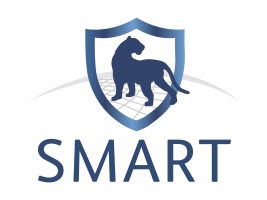 The SMART Partnership
The SMART Partnership
20 July 2016 12:00am
New rhino poaching report out
11 July 2016 1:36pm
Can Drones Live up to the Hype?
8 July 2016 12:00am
Wildlife Crime Tech Challenge Accelerator Bootcamp
24 June 2016 12:00am
TEAM Network and Wildlife Insights
28 April 2016 12:00am
Wildlife Crime Apps
13 April 2016 3:46pm
The Spatial Monitoring and Reporting Tool (SMART)
15 March 2016 12:00am
Disruptive Technology: Embracing the Transformative Impacts of Software on Society
10 March 2016 12:00am
15th International Elephant & Rhino Conservation and Research Symposium
4 March 2016 12:00am
Bringing Conservation Technology to Life
17 February 2016 12:00am
JIGZAW and Mars Omega, an introduction
2 February 2016 3:17pm
3 February 2016 4:44am
Thanks Anthony - what is the best way to introduce others to your product and solutions? I live in Kenya - can you disclose who you are working with here?
With regards to a scale up partner, can you provide a few more details on what you are looking for?
Gautam!
3 February 2016 10:08am
Hi Gautam,
I think the best way is have them read the thread, and then get back to me with questions - I can then respond on a case-by-case basis. Our website is here: http://www.marsomega.com. We have not yet updated it to make public our involvement in countering wildlife crime, but that will be done shortly.
On disclosure, Hamish is actually in Kenya from tomorrow, and he is talking to our Kenyan partners to make sure they are happy to have this information made more freely available. We necessarily are being very discreet.
On scaling - as one of the 16 Prize WInners in the Wildlfe Criem Tech Challenge, we have only just started talking to the competition sponsors about acceleration and scaling. Once we have established that process and have more information ourselves, I will be happy to discuss this further.
Best regards,
Anthony
JIGZAW - information collection and use
3 February 2016 9:55am
Report outlines 2016's most pressing conservation issues
3 February 2016 12:00am
Illegal wildlife sales on social media
4 January 2016 3:56pm
26 January 2016 4:14pm
This post made me wander whether we could employ social media listening tools to identify illegal wildlife trade hotspots, levels, changes in attitude towards IWT products etc.? Perhaps already being done? Here's some case studies from Brandwatch of how brands are using social media listening: https://www.brandwatch.com/case-studies/
Real-time anti-poaching tags to prevent imminent species extinctions?
22 January 2016 2:49pm
Wildlife Crime Tech Challenge: Winners Announced!
22 January 2016 12:00am
The Impact of the Internet of Things
10 December 2015 12:00am
Gaming for Good: Minecraft and Quiz Up
3 December 2015 12:00am
Harnessing Big Data to Combat Illegal Wildlife, Timber and Fisheries Trade
 Rachel Kramer
and 2 more
Rachel Kramer
and 2 more
26 November 2015 12:00am
Technology for Traceability
 Daniel Brizuela
and 1 more
Daniel Brizuela
and 1 more
26 November 2015 12:00am
Gaming for Good: Runescape and Angry Birds
25 November 2015 12:00am
Nov 18th: Cheap Space, DIY Imaging and Big Data
9 November 2015 2:36pm
What is eDNA?
2 November 2015 12:00am




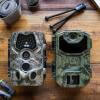








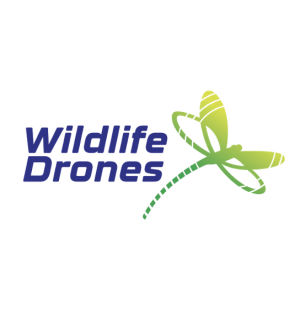





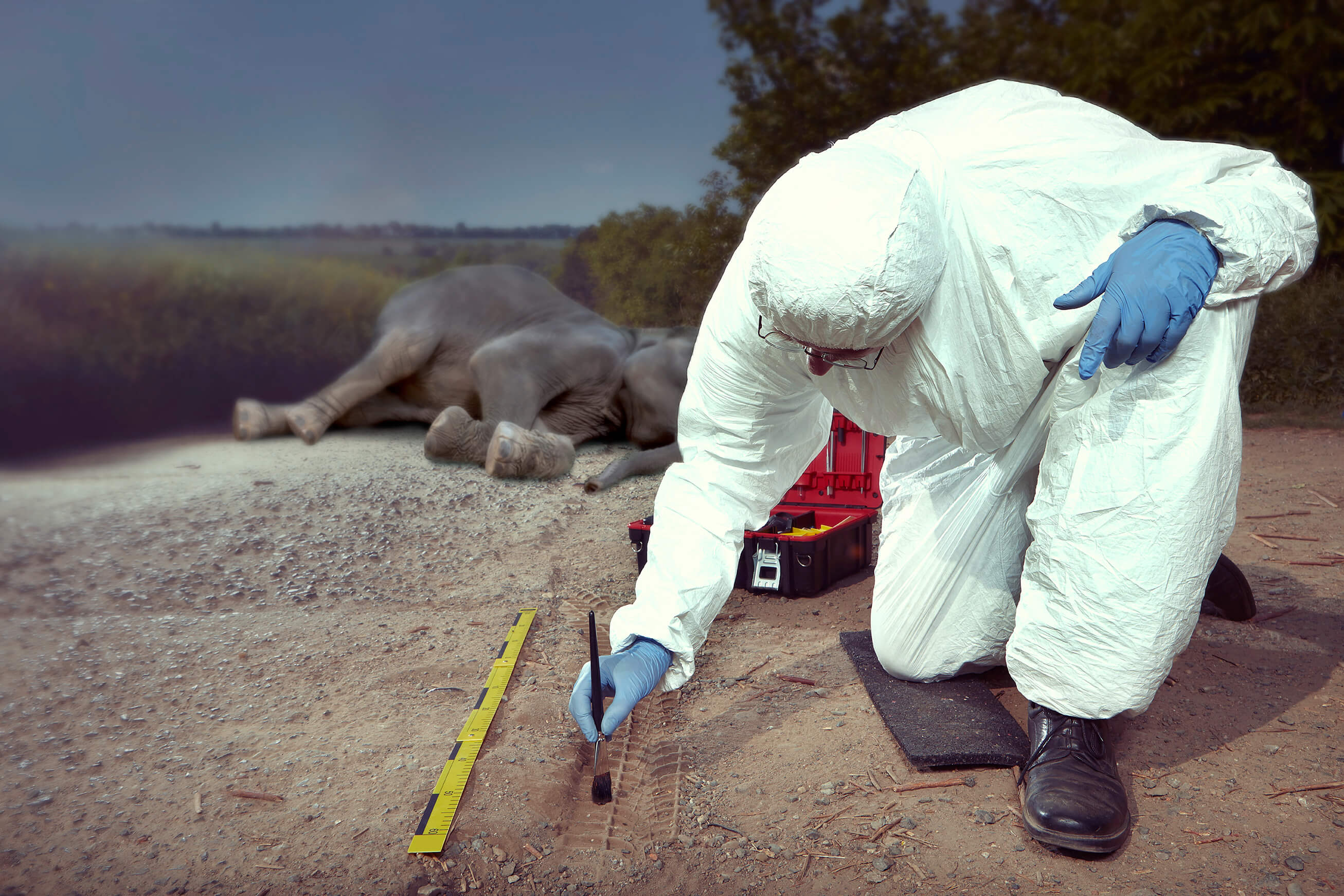







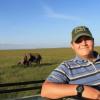
















12 July 2016 7:37pm
There are so few details on the link that it is not possible to judge whether that particualr hardware will be any use for anything. I suspect that it used near infra-red which has some applications for bulk anayses of foods but I doubt that it could distinguish different types of animal ivory. It might be able to discriminate between vegetable and animal ivory.